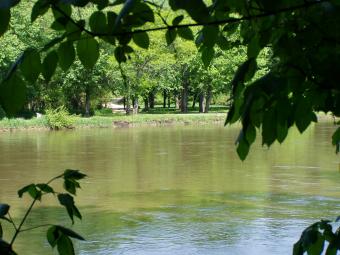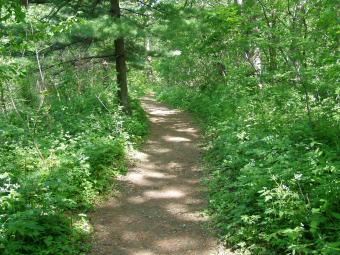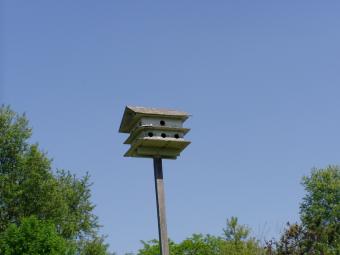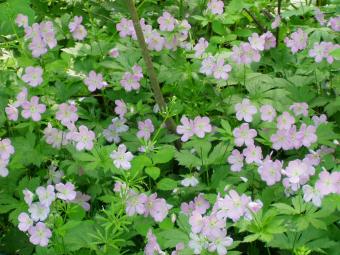Wapsi River Center Nature
The Wapsi River Center has been named in the Iowa Wildlife Viewing Guide as one of 77 areas in Iowa for premium wildlife viewing. The natural resources available at the Wapsi Environmental Education Center will provide numerous options for education and enjoyment. Approximately 30 acres of bottomland forest are located along the Wapsipinicon River, and there are 120 acres of upland timber, a mixture of predominately oak and hickory trees. Throughout the woodland areas, there is a large variety of woodland wildflowers and ferns. If you are interested in woodland wildflowers, be sure to come in early spring, as most of the flowers bloom before there are leaves on the trees.
Grassland areas occupy approximately 60 acres of the Wapsi River Center. The open grasslands are predominantly brome and blue grass, with some woody plants. Wildlife plantings of pines and shrubs have been established along the edges of the grassland area. Seven acres have been planted with native prairie grass and flowers. A small butterfly garden has also been planted.
Water is another resource available for study at the Wapsi River Center. There is approximately 1 mile of river frontage along the Wapsipinicon River. A major portion of this river has been designated an Iowa Protected Water Area. It has one of the longest natural and scenic corridors in Iowa. There are two ponds at the Center. Both ponds have a leakage problem; however, during the spring, there is usually enough water to attract waterfowl, toads, frogs and aquatic insects.
The Wapsi River Center and Sherman Park (207 acres) form a 432-acre complex with 8 distinct plant communities. These communities are rich in plant and animal diversity. There are 161 bird species, 25 mammal species, 17 reptile and amphibian species, and over 300 plant species that have been identified. Ten plants and 9 animals on the Iowa threatened and endangered species list have been identified. During the winter, up to 28 eagles have been observed on a night roost within 200 feet of the Eagle View Eco Center. This roost provides a unique opportunity for interpretive programs.
The Center is closed to public hunting, trapping, mushrooming, and camping with the exception of special/programming events held by the Center. Bicycles are limited to road way use, pets must be leashed when outdoors, and fires are restricted to fire pits and grills that are provided.
Links:
- Iowa's Threatened and Endangered Species Program
http://www.iowadnr.gov/Conservation/Iowas-Wildlife/Threatened-and-Endangered External Link - U.S. Fish and Wildlife Service: Midwest Region
http://www.fws.gov/midwest/ External Link





